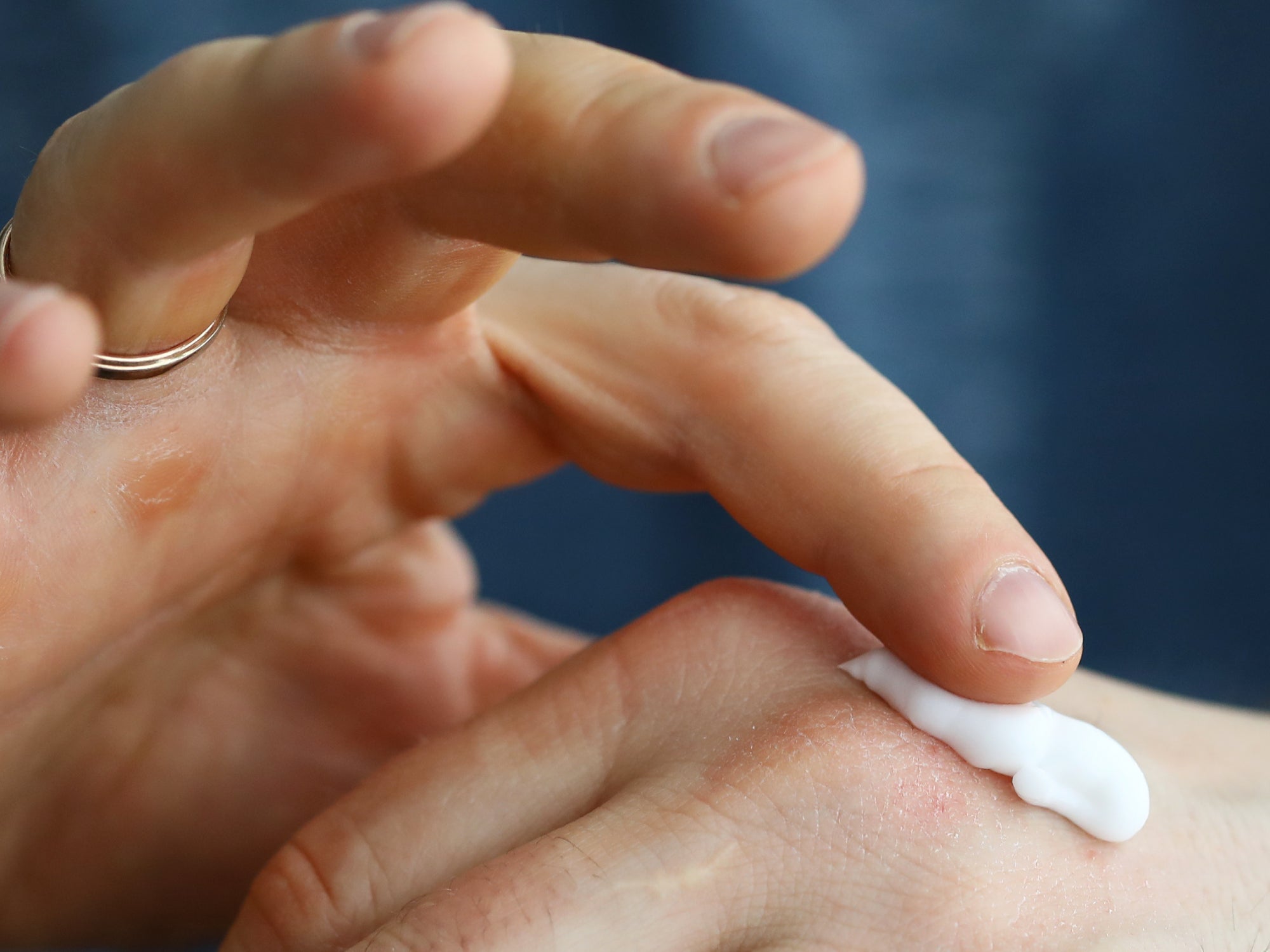Have you ever applied your moisturizer, only to feel an uncomfortable burning sensation on your face? It’s confusing and frustrating—after all, moisturizers are supposed to soothe and protect your skin, not cause pain.
If you’re wondering, “Why does my face burn when applying moisturizer? ” you’re not alone. This burning feeling is your skin’s way of telling you something isn’t right. It could be due to ingredient sensitivity, an allergic reaction, or even a weakened skin barrier.
Understanding why this happens is the first step to protecting your skin and finding products that truly work for you. Keep reading to discover the common reasons behind this burning sensation and learn what you can do to stop it for good.

Credit: balmonds.co.uk
Common Causes Of Burning
Feeling a burning sensation after applying moisturizer is common. It signals your skin is reacting negatively. Several reasons explain why your face may burn. Understanding these helps you avoid discomfort and protect your skin.
Below are the most common causes of burning when using moisturizers.
Ingredient Sensitivity
Some ingredients in moisturizers irritate sensitive skin. Fragrances, preservatives, and acids often cause this. Even products that work for others may sting your skin. Your skin reacts to certain chemicals, triggering a burning feeling.
Allergic Reactions
Burning can mean your skin is allergic to the moisturizer. Allergies happen when your immune system reacts to an ingredient. Symptoms include redness, itching, and stinging. Allergic reactions require stopping the product immediately.
Compromised Skin Barrier
A damaged skin barrier lets irritants penetrate easily. Conditions like eczema or dryness weaken this barrier. When damaged, your skin becomes more sensitive to products. Even gentle moisturizers may cause burning on weakened skin.
Skin Type And Product Mismatch
Using the wrong moisturizer for your skin type can cause burning sensations. Each skin type reacts differently to ingredients. What works for one person may irritate another. Understanding your skin type is key to finding a suitable product.
Moisturizers designed for oily skin often contain ingredients that can sting dry or sensitive skin. Similarly, products made for dry skin may feel heavy and clog pores on oily skin, leading to discomfort.
Understanding Your Skin Type
Skin types include dry, oily, combination, and sensitive. Dry skin lacks moisture and often feels tight. Oily skin produces excess sebum and may appear shiny. Combination skin has dry and oily areas. Sensitive skin reacts easily to products.
Choosing Moisturizers For Sensitive Skin
Sensitive skin needs gentle, fragrance-free moisturizers. Harsh ingredients like alcohol or strong acids can cause burning. Look for products labeled hypoallergenic or designed for sensitive skin. They soothe and protect without irritation.
Why Oily Skin Products May Burn Dry Skin
Oily skin moisturizers often contain ingredients like salicylic acid. These can dry out or sting dry skin. Using a product too strong causes discomfort. Choose a cream or lotion that adds moisture without harsh chemicals.
Testing Products Before Full Use
Test new moisturizers on a small skin area. Apply on your wrist or behind your ear. Wait 24 hours to check for redness or burning. This simple step helps avoid full-face irritation.
Effects Of Over-exfoliation
Over-exfoliation strips the skin’s natural oils and weakens its barrier. This damage makes the skin extra sensitive, causing a burning feeling when moisturizer is applied. Irritated skin reacts strongly to even mild products, leading to discomfort and redness.
Over-exfoliation happens when you remove too many layers of your skin. This weakens the skin’s natural barrier. The barrier protects your skin from irritants and moisture loss. Without it, your skin becomes very sensitive and dry.
Applying moisturizer on over-exfoliated skin can cause a burning feeling. This happens because the skin is raw and easily irritated. Even mild ingredients in moisturizers may sting or burn. The skin may also look red and feel tight.
How Over-exfoliation Damages Your Skin
Excess exfoliation strips away natural oils and dead skin cells. This leaves the skin without protection. The skin barrier cannot hold moisture well. It also cannot block harmful substances effectively. This leads to irritation and inflammation.
The damaged skin barrier lets moisturizer ingredients penetrate too deeply. Some ingredients that are safe normally can cause a burning sensation now. The skin’s nerves become more sensitive. This increases the feeling of discomfort.
Signs Your Skin Is Over-exfoliated
You may notice redness and dryness after exfoliating. Your skin might feel tight or flaky. There can be small cracks or peeling areas. Burning or stinging happens when applying any product. These signs mean your skin needs a break.
Stop exfoliating for a few days. Use gentle, hydrating skincare products to help repair the skin barrier. Avoid strong acids or scrubs until your skin feels calm again.

Credit: www.youtube.com
Immediate Steps To Take
Experiencing a burning sensation after applying moisturizer can be alarming. Taking quick and proper action helps reduce discomfort and prevents further skin damage. Acting immediately can calm the skin and avoid worsening the irritation.
Follow these steps right after you feel the burning to protect your skin and ease the reaction.
Rinsing Off The Moisturizer
Wash your face gently with cool water right away. This helps remove the product and soothes the burning. Avoid using hot water as it can make irritation worse. Pat your skin dry with a soft towel. Do not rub, which can cause more harm.
Avoiding Further Irritation
Stop using all skincare products until your skin feels better. Avoid makeup, cleansers, or treatments that could irritate your skin more. Skip exfoliating or harsh scrubs for several days. Wear loose clothing and avoid touching your face. Protect your skin from sun exposure by staying in the shade or wearing a hat.
Preventing Future Reactions
Preventing future burning or irritation from moisturizers is key to keeping your skin healthy and comfortable. Understanding how to avoid reactions helps protect your skin barrier and reduces redness or discomfort. Taking simple steps before applying new products can save you from painful experiences and skin damage.
Patch Testing New Products
Patch testing helps check if a moisturizer suits your skin before full use. Apply a small amount on your inner wrist or behind your ear. Wait 24 to 48 hours and watch for redness, itching, or burning. No reaction means the product is likely safe for your face. This simple test reduces the risk of a bad reaction. Always test new moisturizers this way.
Choosing Suitable Moisturizers
Select moisturizers made for sensitive or irritated skin types. Look for products labeled fragrance-free and hypoallergenic. Avoid ingredients like alcohol, strong acids, or artificial dyes. Opt for simple formulas with soothing ingredients like aloe vera or ceramides. These help repair and protect the skin barrier. Choose creams or lotions that feel gentle and non-sticky. Proper moisturizer choice lowers the chance of burning or irritation.

Credit: www.youtube.com
When To See A Dermatologist
Knowing when to see a dermatologist is important if your face burns after applying moisturizer. Persistent burning may indicate a serious skin issue. Early consultation can prevent worsening problems and guide proper treatment.
Sometimes, mild irritation passes quickly. Other times, burning signals an allergic reaction or skin barrier damage. A dermatologist can identify the cause and suggest the right care.
Signs That Need Professional Help
Seek a dermatologist if burning lasts more than a few minutes. Intense redness, swelling, or blistering also require prompt attention. These symptoms may show an allergic reaction or chemical burn.
When Burning Is Accompanied By Other Symptoms
Watch for itching, peeling, or dry patches. These signs often mean your skin barrier is compromised. A dermatologist can diagnose conditions like eczema or dermatitis. Early treatment helps restore skin health.
Repeated Burning From Different Products
If multiple moisturizers cause burning, avoid self-diagnosis. You might have sensitive or reactive skin. A dermatologist can perform patch testing to find safe products. This prevents further irritation and discomfort.
Persistent Burning Despite Using Gentle Products
Using fragrance-free or hypoallergenic moisturizers should reduce burning. If it does not, your skin may have an underlying condition. A dermatologist can provide targeted treatments and advice.
Frequently Asked Questions
Why Does Every Moisturizer Burn My Face?
Moisturizers may burn your face due to ingredient sensitivity, allergic reactions, or a damaged skin barrier. Avoid such products and consult a dermatologist.
How Do I Get Rid Of The Burning Sensation On My Face?
Rinse your face with cool water immediately to stop burning. Avoid using irritating products. Test new lotions on your wrist first. Consult a dermatologist to identify allergies or skin issues causing the burning sensation. Use gentle, suitable skincare for your skin type.
Is It Normal To Feel A Burning Sensation After Applying Skincare?
A mild burning sensation after applying skincare can occur due to ingredient sensitivity or a compromised skin barrier. It is not normal if the burning persists. Stop using the product immediately and consult a dermatologist to avoid irritation or damage.
Why Is My Skin Rejecting Moisturizer?
Your skin may reject moisturizer due to ingredient sensitivity, allergic reactions, or a compromised skin barrier. Using the wrong product for your skin type or over-exfoliating can also cause irritation and burning. Stop use and consult a dermatologist if discomfort persists.
Conclusion
A burning face after applying moisturizer is a clear warning. It shows your skin reacts badly to something in the product. Stop using the moisturizer right away to avoid damage. Rinse your face with cool water to soothe the skin.
Consider seeing a dermatologist to find the exact cause. Testing new products on a small skin area helps prevent reactions. Choose moisturizers suitable for your skin type to keep your skin healthy. Taking care of your skin barrier can reduce sensitivity and burning.
Your skin deserves gentle care and the right products.
 Skip to content
Skip to content 